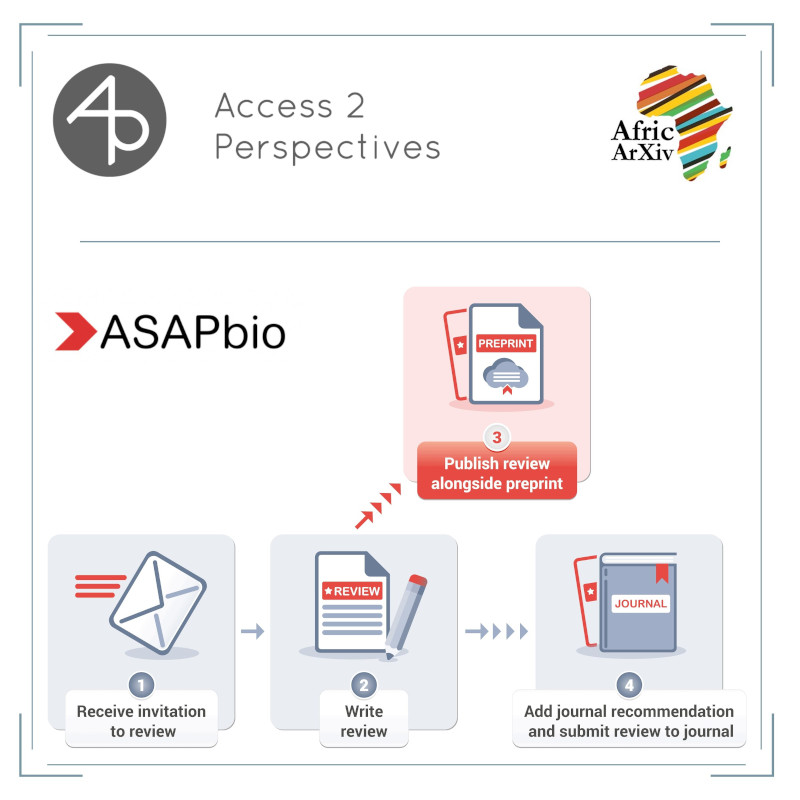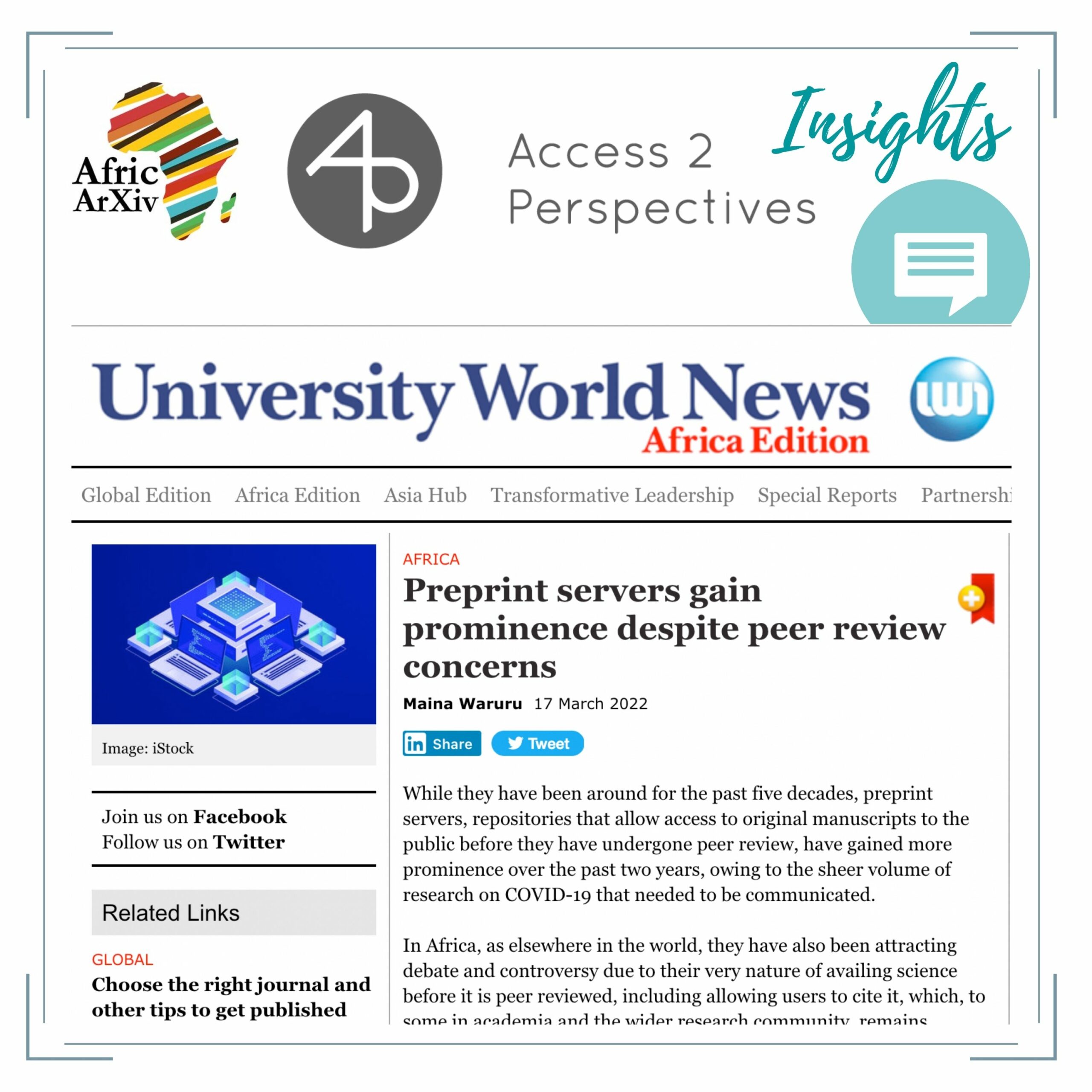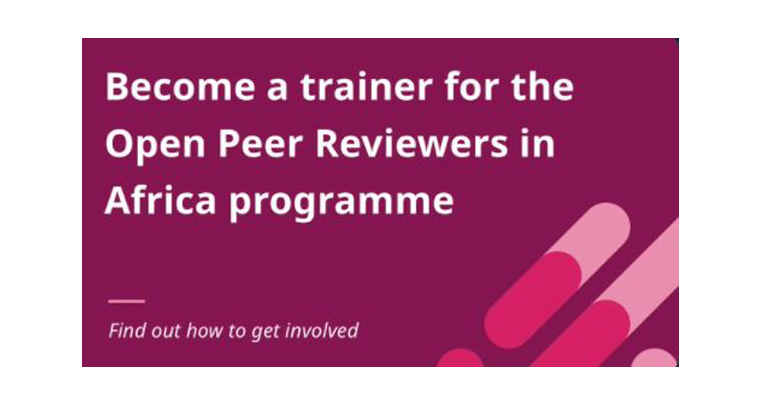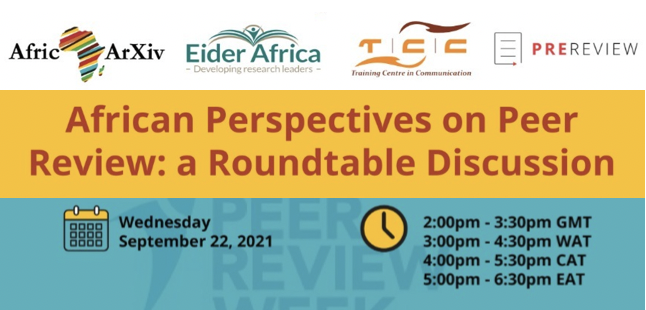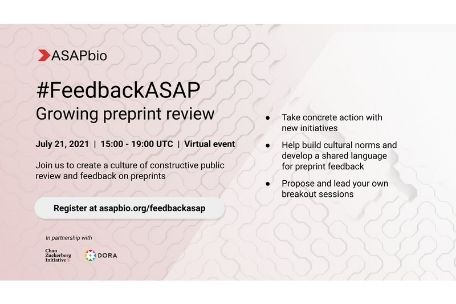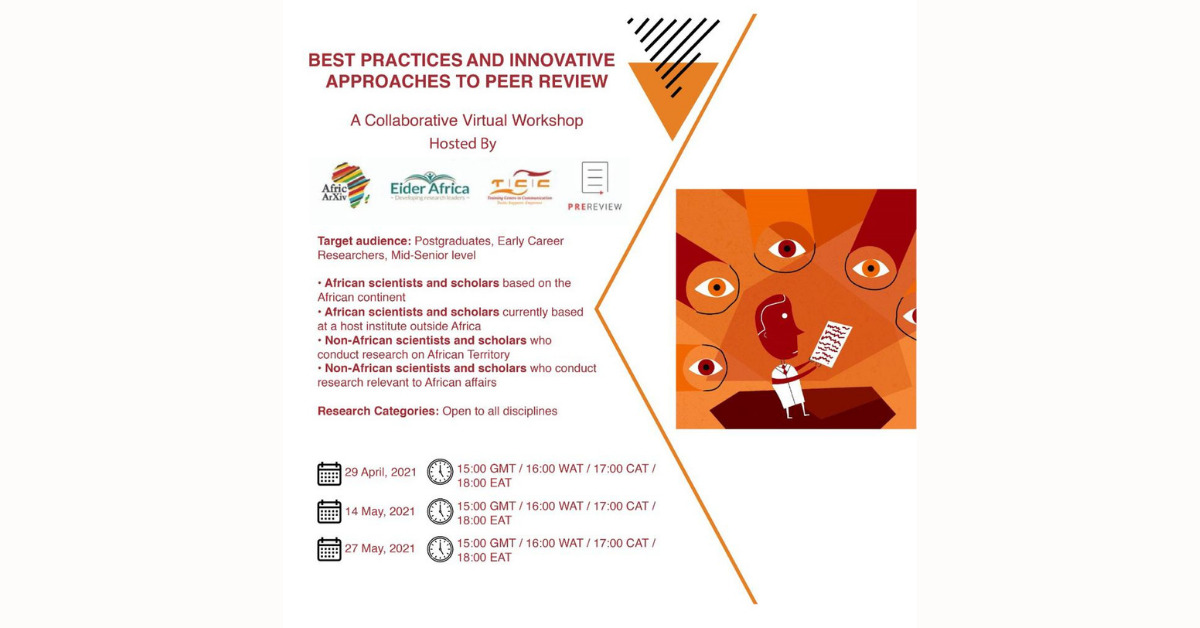- Comparación de los distintos tipos de revisión inter pares
- Ventajas y defectos
- El proceso
- Lectura crítica de un manuscrito
- El debate sobre la revisión inter pares: (no sólo) una búsqueda de más transparencia en el proceso
- ¿Qué se necesita para ser árbitro?
Recursos y referencias
[Open] Revisión inter pares
- PRE-revisión. Kit de herramientas para revisores abiertos
- Guía de reflexión sobre los prejuicios (evaluar y mitigar los prejuicios)
- Guía del revisor
- Rúbrica de evaluación de las revisiones (evaluar constructivamente las revisiones de sus compañeros)
- Cátedras de Investigación de Canadá. Sesgo en la revisión por pares (PDF)
- Canadian Science Publishing. Cómo escribir una revisión científica por pares: guía para el nuevo revisor,
- COPE. Colección de recursos: Procesos de revisión por pares, publicationethics.org/peerreview
- COPE. Directrices éticas para revisores, https://publicationethics.org/node/19886
- eLife. Colección de artículos Peer Review, elifesciences.org/collections/0a5cf428/peer-review
- Academia Enago. Recursos sobre la revisión por pares, enago.com/academy/tag/peer-review/
- Academia Enago. Aumentar la diversidad y la inclusión en la revisión por pares, https://www.enago.com/academy/increasing-diversity-and-inclusion-in-peer-review/
- Sistemas de Salud Global. El proceso de revisión por pares: qué ocurre cuando envías tu manuscrito a una revista (Grabación de un seminario web que cubre el proceso formal de envío de un manuscrito)
- PLOS. Centro de Revisión por Pares, https://plos.org/resources/for-reviewers/
- Ciencia. Revisión por pares en Science Publications,
- Wiley. Guía paso a paso para revisar un manuscrito
Bezuidenhout, Louise, Havemann, Jo, Kitchen, Stephanie, De Mutiis, Anna, & Owango, Joy. (2020). Repositorios Digitales de Investigación Africanos: Mapping the Landscape [preprint]. // conjunto de datos
Fast, Elizabeth, et al. “Conocimientos indígenas y un proceso de revisión por pares relacional”. Revista Internacional de Investigación Cualitativa, vol. 9, no. 4, 2016, pp. 381-84. JSTOR, https://www.jstor.org/stable/26372218
Foster, Antoinette, Hindle, Samantha, Murphy, Katrina M., y Saderi, Daniela. (2021). Guía abierta de reflexión sobre el sesgo de los revisores. Zenodo. https://doi.org/10.5281/zenodo.5484052
Gasparyan AY, Gerasimov AN, Voronov AA, Kitas GD. Recompensar a los revisores: mantener la integridad de la comunicación científica. J Korean Med Sci. 2015;30(4):360-364. doi: 10.3346/jkms.2015.30.4.360
Gregory AT, Denniss AR (2019) Todo lo que necesitas saber sobre la revisión por pares: lo bueno, lo malo y lo feo, DOI: 10.1016/j.hlc.2019.05.171
Hodgkinson, M., Marincola, E., Aldirdiri, O., & Owango, J. (2020). Estado del Acceso Abierto en África y su Implicación para los Investigadores. AfricArXiv. (audio/visual)
Horbach, S.P.J.M., Halffman, W. La capacidad de diferentes procedimientos de revisión por pares para señalar publicaciones problemáticas. Scientometrics 118, 339-373 (2019). doi: 10.1007/s11192-018-2969-2
Horbach, S.P.J.M., Halffman, W. Revisión por pares de revistas y evaluación editorial: ¿Innovador cauteloso o gigante dormido? Minerva 58, 139-161 (2020). doi: 10.1007/s11024-019-09388-z
Kennedy AB. Incentivar la revisión por pares. Int J Ther Masaje Corporal. 2017;10(4):5-7. Publicado el 4 de diciembre de 2017. // url: pubmed.ncbi.nlm.nih.gov/29209443/
Krummel M, Blish C, Kuhns M, Cadwell K, Oberst A, Goldrath A, Ansel KM, Chi H, O’Connell R, Wherry EJ, Pepper M; Consorcio de Inmunología del Futuro. Revisión Universal de Principios: Un método impulsado por la comunidad para mejorar la revisión por pares. Cell. 2019 Dic 12;179(7):1441-1445. doi: 10.1016/j.cell.2019.11.029. PMID: 31835023.
Meadows A (2018). Ocho formas de abordar la diversidad y la inclusión en la revisión por pares. La cocina erudita
Okune, Angela (2019). Autoevaluación de la Práctica Citacional. Zenodo. doi: 10.5281/zenodo.3066861
Owango, J., Obanda, J., Bourguet, D., Marinello, G., Saderi, D., Fornés, A. T., … Havemann, J. (2020). Revisión por pares rápida y abierta [Webinar]. AfricArXiv. doi: 10.21428/3b2160cd.dba872ac
Owango, J., Munene, A., Ngugi, J., Havemann, J., Obanda, J., & Saderi, D. (2021). Best Practices and Innovative Approaches to Peer Review [incl. grabaciones de talleres]. AfricArXiv. doi: 10.21428/3b2160cd.c3faf764
Rajagopalan J (2018). Opiniones diversas sobre la diversidad en la revisión por pares. Visión de Editage
Ross-Hellauer T. ¿Qué es la revisión por pares abierta? Una revisión sistemática [versión 2; revisión por pares: 4 aprobado]. F1000Research 2017, 6:588(https://doi.org/10.12688/f1000research.11369.2)
Ross-Hellauer, T., Görögh, E. Directrices para la aplicación de la revisión por pares abierta. Res Integr Peer Rev 4, 4 (2019). https://doi.org/10.1186/s41073-019-0063-9
Ross-Hellauer T, Deppe A, Schmidt B (2017) Encuesta sobre la revisión por pares abierta: Actitudes y experiencias de editores, autores y revisores. PLoS ONE 12(12): e0189311. https://doi.org/10.1371/journal.pone.0189311
Ross-Hellauer, Tony. (2017). OpenAIRE2020 D7.4 – Modelos novedosos para la revisión por pares abierta. Zenodo. https://doi.org/10.5281/zenodo.1257257
Schmidt B, Ross-Hellauer T, van Edig X y Moylan EC. Diez consideraciones para la revisión por pares abierta [versión 1; revisión por pares: 2 aprobado]. F1000Research 2018, 7:969(https://doi.org/10.12688/f1000research.15334.1)
Sebola, M.P., 2018. La revisión por pares, la erudición y los editores de publicaciones científicas: la muerte del conocimiento científico en África. KOERS – Boletín de Erudición Cristiana, 83(1).
Stiller-Reeve M (2018). Cómo escribir una revisión por pares exhaustiva. https://doi.org/10.1038/d41586-018-06991-0
Superchi, C., González, J.A., Solà, I. et al. Herramientas utilizadas para evaluar la calidad de los informes de revisión por pares: una revisión sistemática metodológica. BMC Med Res Methodol 19, 48 (2019). https://doi.org/10.1186/s12874-019-0688-x
Squazzoni, F., Marusic, A., Seeber, M., Mehmani, B., Willis, M., Hurst, P., … Grimaldo, F. (2019, 5 de noviembre). Intercambio de datos e investigación sobre la revisión inter pares: Una llamada a la acción. https://doi.org/10.31235/osf.io/sr6eg
Tennant J (2020) Es hora de poner fin a la explotación del trabajo académico gratuito. Edición científica europea 46: e51839. doi.org/10.3897/ese.2020.e51839
Tennant, J.P., Ross-Hellauer, T. Las limitaciones de nuestra comprensión de la revisión por pares. Res Integr Peer Rev 5, 6 (2020). // preprint (2019) https://doi.org/10.31235/osf.io/jq623
Tennant JP, Dugan JM, Graziotin D et al. Una perspectiva multidisciplinar sobre las innovaciones emergentes y futuras en la revisión por pares [versión 3; revisión por pares: 2 aprobado]. F1000Research 2017, 6:1151(https://doi.org/10.12688/f1000research.12037.3)
Tokalić R. y Marušić A. (2018). A peer review card exchange game, European Science Editing 44(3). (Un juego de cartas que abarca la receptividad, la competencia, la imparcialidad, la confidencialidad, la crítica constructiva y la responsabilidad).
Entradas de blog relacionadas
Promoting Open Peer Review and Preprint Adoption in Africa
Presentation held at the OASPA 2023 Conference during the panel Preprints: Supporting Open Peer Review and Global Preprint Adoption Trends. […]
Publish Your Reviews
At AfricArXiv, we are proud supporters and endorsers of the ‘Publish Your Reviews’ campaign by ASAPbio.
Preprint servers gain prominence, a spotlight on AfricArXiv
Talking about preprints and AfricArXiv in particular, we are honored to be featured in University World News along with colleagues and institutional partners Joy Owango (TCC Africa-Training Centre in Communication), Stephanie Dawson (ScienceOpen), Mark Hahnel (Figshare), Catherine Ahearn (Knowledge Futur
Open Peer Reviewers in Africa: Nominations are now open to recruit future peer-review trainers across the continent
AfricArXiv, Eider Africa, eLife, PREreview, and the Training Centre in Communication (TCC Africa) invite nominations for researchers in the fields of life sciences and medicine who will help co-create and then disseminate resources promoting best open peer-review practices in Africa.
Open Reviewers Africa (presentation)
Owango, Joy, Munene, Aurelia, Ngugi, Wangari Joyce, Obanda, Johanssen, Havemann, Johanna, Saderi, Daniela, & Korzec, Kornelia. (2021, December 9). Open Reviewers Africa – A workshop to empower the next generation of African Peer Reviewers. FORCE2021: Joining Forces to Advance the Future of Research Communications. Zenodo. https://doi.org/10.5281/zenodo.5770712
Open Reviewers Africa (poster)
Munene, Aurelia, Ngugi, Wangari Joyce, Owango, Joy, Obanda, Johanssen, Havemann, Johanna, Saderi, Daniela, & Korzec, Kornelia. (2021). Open Reviewers Africa. FORCE2021: Joining Forces to Advance the Future of Research Communications. Zenodo. https://doi.org/10.5281/zenodo.5762096
Eider Africa, PREreview, AfricArXiv, and TCC Africa Develop a Course to Involve More African Researchers in Peer Review
Eider Africa, PREreview, AfricArXiv, and the Training Centre in Communication (TCC Africa) are working together on a new peer-review training program for early to mid-career researchers in Africa, facilitated by eLife. The course aims to raise awareness around preprints and invite African researchers/scholars to the open review of preprints.
African Perspectives On Peer Review: A Roundtable Discussion
AfricArXiv, Eider Africa, TCC Africa, and PREreview are pleased to host a 60-minute long roundtable discussion, bringing African perspectives to the global conversation around this years’ Peer Review Week’s theme, “Identity in Peer Review”. Together with a multidisciplinary panel of African editors, reviewers and early-career researchers, we will explore the shifting identities of researchers in the African continent, from the dominant perspective that sees them as consumers of knowledge produced in other contexts to researchers who are actively engaged in scholarly peer review. We will strive to create a safe space for reflection around issues of scholarly knowledge decolonization, bias in peer review, and open transformative peer review practices.
Announcing #FeedbackASAP by ASAPbio
ASAPbio is partnering with DORA, HHMI, and the Chan Zuckerberg Initiative to host a discussion on creating a culture of constructive public review and feedback on preprints. Read the full ASAPbio announcement and find out how to register for the event and to support preprint review.
Best Practice and Innovative Approaches to Peer Review
AfricArXiv, Eider Africa, TCC Africa, and PREreview are joining forces to bring together scientists from across Africa and scientists engaged in African-related research for a series of 3 virtual discussions and collaborative peer review.
TCC Africa & AfricArXiv win at ASAPbio sprint
Under the title Encouraging Preprint Curation and Review, ASAPbio has held a design sprint to increase exposure for new and […]
Call to action: COVID-19 Rapid Review
Originally published at: africarxiv.pubpub.org Cite as: AfricArXiv (2020). Call to action: COVID-19 Rapid Review. AfricArXiv. Retrieved from https://africarxiv.pubpub.org/pub/24sv5nej As a […]


